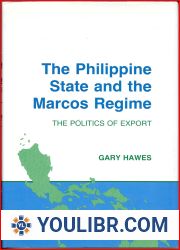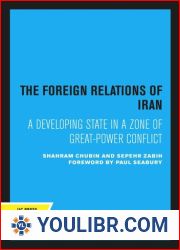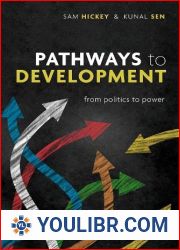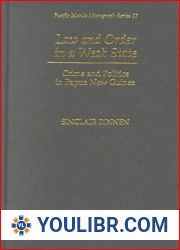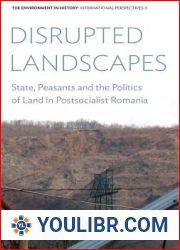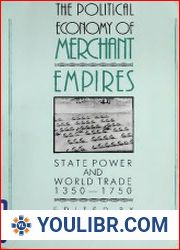
BOOKS - Power Politics and State Formation in the Twentieth Century: The Dynamics of ...

Power Politics and State Formation in the Twentieth Century: The Dynamics of Recognition
Author: Bridget Coggins
Year: March 31, 2014
Format: PDF
File size: PDF 6.8 MB
Language: English

Year: March 31, 2014
Format: PDF
File size: PDF 6.8 MB
Language: English

Power Politics and State Formation in the Twentieth Century: The Dynamics of Recognition In the rapidly changing world of technology, it is essential to understand the dynamics of recognition in shaping the formation of states and their relationships with each other. This book, "Power Politics and State Formation in the Twentieth Century: The Dynamics of Recognition delves into the intricacies of state formation and the role of power politics in determining the fate of secessionist movements. The author presents a compelling argument that the success of these movements is not solely dependent on the authority and control within the nascent states but rather on the support of the strongest members of the international community, which is often conditioned by parochial political considerations rather than the merits of the cause. The book begins by examining the various secessionist movements across the globe, from Kurdistan to Somaliland, Xinjiang to South Yemen, and how they hope to secure independent states of their own. However, most of these movements will not prevail, and the existing scholarly wisdom offers one explanation for this phenomenon - the lack of authority and control within the nascent states. The author challenges this view and provides an alternative account based on an expansive dataset and detailed case studies. Through a comprehensive analysis of historical events and contemporary issues, the author reveals that the strongest members of the international community play a crucial role in determining the fate of secessionist movements.
Power Politics and State Formation in the Twentieth Century: The Dynamics of Recognition В быстро меняющемся мире технологий важно понимать динамику признания в формировании формирования государств и их отношений друг с другом. Эта книга «Силовая политика и формирование государства в ХХ веке: динамика признания» углубляется в тонкости формирования государства и роль силовой политики в определении судьбы сепаратистских движений. Автор приводит убедительный аргумент в пользу того, что успех этих движений зависит не только от авторитета и контроля в нарождающихся государствах, но и скорее от поддержки самых сильных членов международного сообщества, что часто обусловлено местническими политическими соображениями, а не достоинствами дела. Книга начинается с изучения различных сепаратистских движений по всему земному шару, от Курдистана до Сомалиленда, от Синьцзяна до Южного Йемена, и того, как они надеются обеспечить независимые собственные государства. Однако большинство этих движений не возобладают, и существующая научная мудрость предлагает одно объяснение этому явлению - отсутствие авторитета и контроля внутри зарождающихся государств. Автор оспаривает эту точку зрения и предоставляет альтернативную учетную запись, основанную на обширном наборе данных и подробных тематических исследованиях. Посредством всестороннего анализа исторических событий и современных проблем автор показывает, что наиболее сильные члены международного сообщества играют решающую роль в определении судьбы сепаратистских движений.
Power Politics and State Formation in the Twentieth Century : The Dynamics of Recognition Dans un monde technologique en mutation rapide, il est important de comprendre la dynamique de la reconnaissance dans la formation des États et de leurs relations les uns avec les autres. Ce livre intitulé « La politique de la force et la formation de l'État au XXe siècle : la dynamique de la reconnaissance » s'approfondit dans les subtilités de la formation de l'État et le rôle de la politique de la force dans la détermination du sort des mouvements séparatistes. L'auteur fait valoir que le succès de ces mouvements dépend non seulement de l'autorité et du contrôle des États émergents, mais aussi du soutien des membres les plus forts de la communauté internationale, souvent en raison de considérations politiques locales plutôt que du bien-fondé de la cause. livre commence par une étude des différents mouvements séparatistes à travers le monde, du Kurdistan au Somaliland, du Xinjiang au Yémen du Sud, et comment ils espèrent assurer l'indépendance de leurs propres États. Mais la plupart de ces mouvements ne l'emporteront pas, et la sagesse scientifique existante offre une explication à ce phénomène : le manque d'autorité et de contrôle au sein des États naissants. L'auteur conteste ce point de vue et fournit un compte alternatif basé sur un vaste ensemble de données et d'études de cas détaillées. Par une analyse approfondie des événements historiques et des problèmes contemporains, l'auteur montre que les membres les plus forts de la communauté internationale jouent un rôle crucial dans la détermination du sort des mouvements séparatistes.
Power Politics and State Formation in the Twentieth Century: The Dynamics of Recognition En un mundo de tecnología que cambia rápidamente, es importante comprender la dinámica del reconocimiento en la formación de estados y sus relaciones entre sí. Este libro «La política de poder y la formación del Estado en el siglo XX: dinámica del reconocimiento» profundiza en los entresijos de la formación del Estado y en el papel de la política de poder en la determinación del destino de los movimientos separatistas. autor argumenta firmemente que el éxito de estos movimientos depende no sólo de la autoridad y el control en los Estados emergentes, sino también del apoyo de los miembros más poderosos de la comunidad internacional, a menudo debido a consideraciones políticas locales y no a los méritos de la causa. libro comienza con el estudio de diversos movimientos separatistas en todo el mundo, desde el Kurdistán hasta Somalilandia, desde Xinjiang hasta Yemen del Sur, y cómo esperan asegurar estados propios independientes. n embargo, la mayoría de estos movimientos no prevalecerán, y la sabiduría científica existente ofrece una explicación para este fenómeno: la falta de autoridad y control dentro de los estados nacientes. autor impugna este punto de vista y proporciona una cuenta alternativa basada en un amplio conjunto de datos y estudios de casos detallados. Mediante un análisis exhaustivo de los acontecimientos históricos y los problemas contemporáneos, el autor demuestra que los miembros más poderosos de la comunidad internacional desempeñan un papel decisivo en la determinación del destino de los movimientos separatistas.
Power Politics and State Formation in the Twentieth Century: The Dynamics of Recognition In un mondo tecnologico in rapida evoluzione, è importante comprendere la dinamica del riconoscimento nella formazione degli Stati e nella loro relazione. Questo libro, «La politica di potere e la formazione dello Stato nel XX secolo: le dinamiche del riconoscimento», si approfondisce nella finezza della formazione dello stato e nel ruolo della politica di potere nel determinare il destino dei movimenti separatisti. L'autore sostiene in modo convincente che il successo di questi movimenti non dipende solo dalla credibilità e dal controllo degli stati emergenti, ma anche dal sostegno dei membri più forti della comunità internazionale, spesso dovuto a considerazioni politiche locali e non alle virtù del caso. Il libro inizia con lo studio di diversi movimenti separatisti in tutto il mondo, dal Kurdistan al Somiland, dallo Xinjiang allo Yemen meridionale, e come sperano di garantire i propri stati indipendenti. Ma la maggior parte di questi movimenti non prevalgono, e la saggezza scientifica attuale offre una spiegazione per questo fenomeno: la mancanza di credibilità e controllo all'interno degli stati emergenti. L'autore contesta questo punto di vista e fornisce un account alternativo basato su una vasta serie di dati e studi di caso dettagliati. Attraverso un'analisi completa degli eventi storici e dei problemi contemporanei, l'autore dimostra che i membri più forti della comunità internazionale sono fondamentali per determinare il destino dei movimenti separatisti.
Machtpolitik und Staatsbildung im zwanzigsten Jahrhundert: Die Dynamik der Anerkennung In der sich schnell verändernden Welt der Technologie ist es wichtig, die Dynamik der Anerkennung bei der Gestaltung der Staatsbildung und ihrer Beziehungen zueinander zu verstehen. Dieses Buch „Machtpolitik und Staatsbildung im 20. Jahrhundert: Dynamik der Anerkennung“ vertieft sich in die Feinheiten der Staatsbildung und die Rolle der Machtpolitik bei der Bestimmung des Schicksals separatistischer Bewegungen. Der Autor liefert ein überzeugendes Argument dafür, dass der Erfolg dieser Bewegungen nicht nur von der Autorität und Kontrolle in den aufstrebenden Staaten abhängt, sondern vielmehr von der Unterstützung der stärksten Mitglieder der internationalen Gemeinschaft, die oft von lokalen politischen Erwägungen und nicht von den Tugenden der Sache getrieben wird. Das Buch beginnt mit der Untersuchung verschiedener separatistischer Bewegungen auf der ganzen Welt, von Kurdistan bis Somaliland, von Xinjiang bis Südjemen, und wie sie hoffen, unabhängige eigene Staaten zu sichern. Die meisten dieser Bewegungen werden sich jedoch nicht durchsetzen, und die bestehende wissenschaftliche Weisheit bietet eine Erklärung für dieses Phänomen - einen Mangel an Autorität und Kontrolle innerhalb der aufstrebenden Staaten. Der Autor bestreitet diese chtweise und stellt ein alternatives Konto zur Verfügung, das auf einem umfangreichen Datensatz und detaillierten Fallstudien basiert. Durch eine umfassende Analyse historischer Ereignisse und zeitgenössischer Probleme zeigt der Autor, dass die stärksten Mitglieder der internationalen Gemeinschaft eine entscheidende Rolle bei der Bestimmung des Schicksals separatistischer Bewegungen spielen.
''
Yirminci Yüzyılda Güç Politikaları ve Devlet Oluşumu: Tanınmanın Dinamikleri Hızla değişen teknoloji dünyasında, devletlerin oluşumunu ve birbirleriyle ilişkilerini şekillendirmede tanınmanın dinamiklerini anlamak önemlidir. "20. Yüzyılda Güç Politikaları ve Devlet Oluşumu: Tanınmanın Dinamikleri'adlı bu kitap, devlet oluşumunun inceliklerini ve ayrılıkçı hareketlerin kaderini belirlemede güç politikasının rolünü inceliyor. Yazar, bu hareketlerin başarısının yalnızca gelişmekte olan Devletlerdeki otorite ve kontrole değil, aynı zamanda uluslararası toplumun en güçlü üyelerinin desteğine bağlı olduğuna dair ikna edici bir argüman ortaya koymaktadır; bu, genellikle davanın esasından ziyade yerel siyasi düşüncelerden kaynaklanmaktadır. Kitap, Kürdistan'dan Somaliland'a, ncan'dan Güney Yemen'e kadar dünyadaki çeşitli ayrılıkçı hareketleri ve kendi bağımsız devletlerini nasıl güvence altına almayı umduklarını inceleyerek başlıyor. Bununla birlikte, bu hareketlerin çoğu geçerli olmayacaktır ve mevcut bilimsel bilgelik bu fenomen için bir açıklama sunar - yeni ortaya çıkan devletlerde otorite ve kontrol eksikliği. Yazar bu görüşe itiraz eder ve kapsamlı bir veri kümesine ve ayrıntılı vaka çalışmalarına dayanan alternatif bir hesap sunar. Tarihsel olayların ve güncel sorunların kapsamlı bir analiziyle yazar, uluslararası toplumun en güçlü üyelerinin ayrılıkçı hareketlerin kaderini belirlemede belirleyici bir rol oynadığını göstermektedir.
سياسة القوة وتكوين الدولة في القرن العشرين: ديناميكيات الاعتراف في عالم التكنولوجيا سريع التغير، من المهم فهم ديناميكيات الاعتراف في تشكيل الدول وعلاقاتها مع بعضها البعض. يتعمق هذا الكتاب، «سياسة القوة وتكوين الدولة في القرن العشرين: ديناميكيات الاعتراف»، في تعقيدات تشكيل الدولة ودور سياسات القوة في تحديد مصير الحركات الانفصالية. وتقدم صاحبة البلاغ حجة مقنعة مفادها أن نجاح هذه الحركات لا يتوقف على السلطة والسيطرة في الدول الناشئة فحسب، بل على دعم أقوى أعضاء المجتمع الدولي، وهو ما يرجع في كثير من الأحيان إلى اعتبارات سياسية محلية وليس إلى الأسس الموضوعية للقضية. يبدأ الكتاب بفحص الحركات الانفصالية المختلفة في جميع أنحاء العالم، من كردستان إلى أرض الصومال وشينجيانغ إلى اليمن الجنوبي، وكيف يأملون في تأمين دول مستقلة خاصة بهم. ومع ذلك، فإن معظم هذه الحركات لن تسود، وتقدم الحكمة العلمية الحالية تفسيرًا واحدًا لهذه الظاهرة - الافتقار إلى السلطة والسيطرة داخل الدول الناشئة. يعارض المؤلف هذا الرأي ويقدم سردًا بديلاً يستند إلى مجموعة بيانات واسعة ودراسات حالة مفصلة. ويبين المؤلف، من خلال تحليل شامل للأحداث التاريخية والمشاكل المعاصرة، أن أقوى أعضاء المجتمع الدولي يؤدون دورا حاسما في تحديد مصير الحركات الانفصالية.








 49
49  3 TON
3 TON




